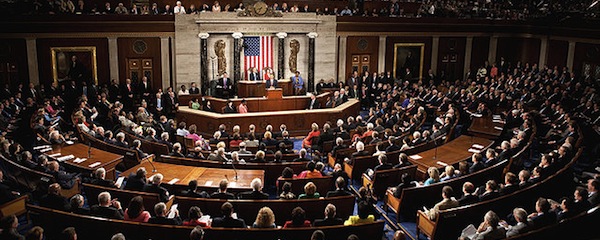This piece is a research essay, co-authored by Carl Bindenagel and Bill. for The Globalist. It is Part II of The Globalist’s American Mezzogiorno series. Part I, by Stephan Richter and Carl Bindenagel, is The American Mezzogiorno: A Thanksgiving Reflection. Part III (“Take the Money and Run”) can be found here.
The American South’s political power manifests itself in the following four dimensions:
1. Congressional Power
2. Agricultural handouts
3. Defense spending as a welcome stimulus
4. Antiquated thinking
Exhibit 1: Congressional Power
Prior to the 2014 mid-term elections, representatives from the American South chaired or represented a majority of members on important permanent committees and subcommittees in the U.S. House of Representatives. At the state level, Republican governors led unified government in 26 states.
Part I: A Thanksgiving Reflection
Part II: How The South Really Operates
Part III: Take the Money and Run (Friday)
How have these lawmakers used influential policy-positions to affect the welfare and livelihoods of their constituents? Mainly they enriched themselves, protected the powerful, and deliberately harmed the vulnerable in their jurisdictions and states.
They directed federal funding to themselves and to contractors with powerful lobbies and fought against programs to assist the poor, the abused and common citizens. Often, this included children, who are among the impoverished in America and who lack resources, including access to education.
Lawmakers’ self-serving behavior at the expense of their constituents can most clearly be seen on the defense-spending related committees in the U.S. Congress.
Southerners account for 53% of the House Appropriations Defense Subcommittee and 55% of the House Appropriations Committee on Homeland Security (compared to nationwide population share of 38%).
Most tellingly, the membership of the House Subcommittee on Military Construction/Veterans Affairs is now 63% southern. The Chair of the full House Appropriations Committee is a southern Republican as well.
All of this matters greatly: Under the U.S. Constitution, all spending bills must originate in the House and ultimately from its Appropriations Committee. The Republican-dominated House (and the Southern-dominated House Majority) therefore has great control over how and where federal money will be spent.
Exhibit 2: Agricultural handouts
In addition to the defense sector, in rural communities, farmers are frequently subsidized – even in the event of crop-failure or natural disasters (such as floods or droughts).
Historically, this was crucial to prevent small-family farms from collapsing. But today, with the rise of consolidated agribusiness, the picture looks very different.
Many Republican lawmakers in the U.S. House support this type of subsidy, not only for their constituents, but also to enrich themselves.
In September 2013, several of the same House members who voted to cut almost $40 billion out of food stamps over the next decade personally received hundreds of thousands or even millions of federal dollars in farm subsidies.
Take the case of Rep. Stephen Fincher. He cited a passage from the Bible as justification for his vote against providing food stamps, presuming that a needy person was just lazy.
“He who does not work will not eat,” said Fincher. But from 1999 to 2012, the gentleman himself (not his state) received more than $3.4 million in federal farm subsidies.
Fincher’s is not the only case of faulting needy working people while claiming personal privilege from the government:
Read more






 Predictably, Congressional Republicans are already telling everyone that the problem is U.S. corporate tax rates aren’t low enough, when in reality, we’re trying to compete with literal tropical islands for tax evaders that are nominally outside of UK control. That’s a losing battle. We need to put pressure on the UK to stop stealing revenue from the rest of the developed world, not lower our already low effective corporate tax rate.
Predictably, Congressional Republicans are already telling everyone that the problem is U.S. corporate tax rates aren’t low enough, when in reality, we’re trying to compete with literal tropical islands for tax evaders that are nominally outside of UK control. That’s a losing battle. We need to put pressure on the UK to stop stealing revenue from the rest of the developed world, not lower our already low effective corporate tax rate. Wow, there is so much to unpack in that article.
Wow, there is so much to unpack in that article.